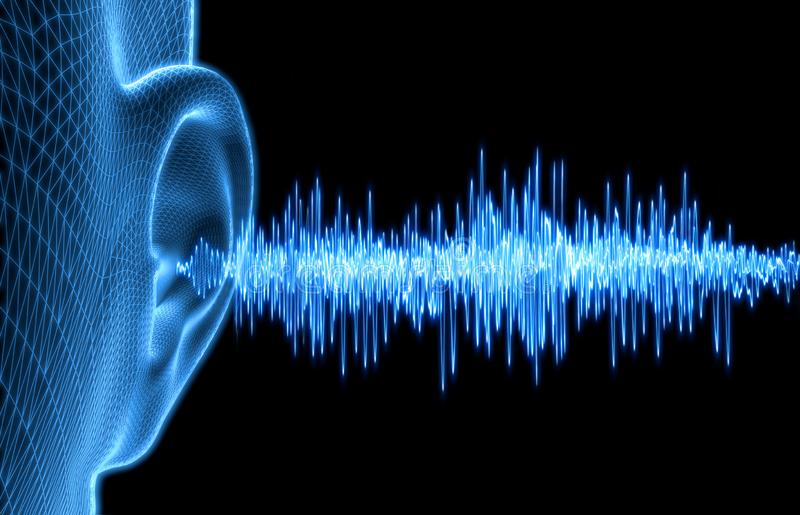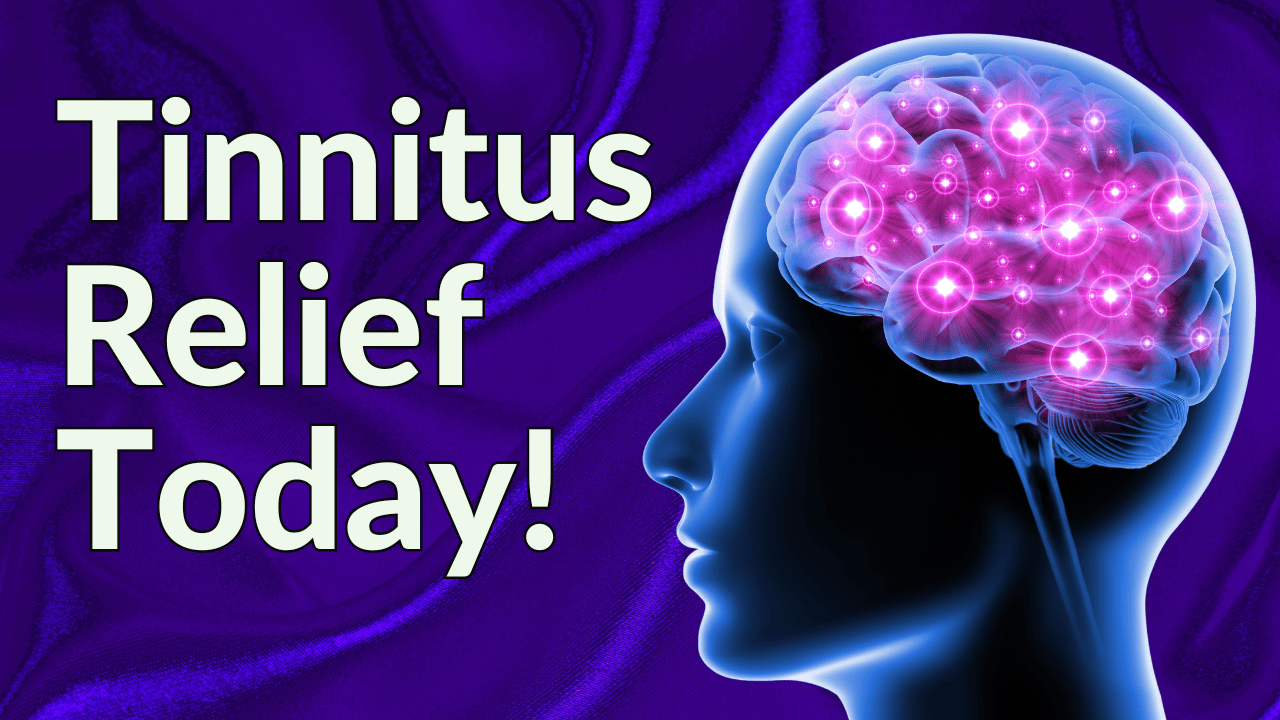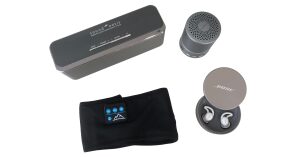Tinnitus is the perception of hearing sounds in the ears or head, and the sounds can be different for every person. Typical sounds include ringing, buzzing, humming, and clicking. Depending on the cause, the sounds can be objective or subjective, meaning that they can either be audible to only you, or can be heard by others as well. The cause of the tinnitus can also affect the types of sounds that you hear, how loud they are, and how frequently you hear them.
Different Sounds Of Tinnitus
Tinnitus can sound different for each individual. The most common sound is described as ringing, buzzing, hissing, humming or electrical noise. Additionally, one may hear roaring, pulsating, or clicking.
Often different tinnitus causes coincide with certain descriptions of the sounds. A high-pitched ringing, tonal sound is usually associated with high-frequency hearing loss. A roaring sound that starts out intermittent is sometimes associated with the rare Meniere’s Disease.
"Treble Health helped me reduce my tinnitus by about 80%, and now I can live my life again!"


"Treble Health helped me reduce my tinnitus by about 80%, and now I can live my life again!"
– Steve D.
Book a free consultation to learn which Treble Health solution is right for you. Join Steve and thousands more who have found lasting tinnitus relief.
Pulsating is when the tinnitus sound appears to beat or ‘whoosh’, like a heartbeat. This is interesting because it is one type of tinnitus that is not like most others. It has a physical cause that others would be able to hear could they get close enough. It may be vascular in origin, meaning it may be related to your blood vessels.
The sounds you hear may change in intensity, and can sometimes be more noticeable at night or when it’s quiet, potentially causing stress and tinnitus-related insomnia. There are treatments for this, including Tinnitus Retraining Therapy (TRT) and Cognitive Behavioral Therapy (CBT), and both have shown very positive results.
There are many different factors that contribute to how your tinnitus presents itself. Sounds can change from ear to ear or be in both ears, but can sometimes also present themselves “in your head.” The importance of these factors may surprise you. Sometimes it’s very noticeable, but sometimes it’s more of a background noise.
Does The Tinnitus Sound Matter?
In a nutshell, yes – the sound of your tinnitus matters. While tinnitus itself is physically harmless, it could be a sign of an underlying condition needing medical treatment. For example, pulsating tinnitus in one ear may be more worrisome than high-frequency tinnitus in both ears if the pulsating is found to be related to a vascular problem, although this is not always the case. Tinnitus in one ear requires medical evaluation more so than tinnitus in both ears.
If your sound has changed, this can also be significant. Sometimes tinnitus will increase in volume or otherwise become more bothersome. It may be something relatively harmless like a spike caused by insomnia, stress, or loud noise exposure, but can also be something more substantial, such as wax impacted in the ear, an ear infection, reduced hearing, or other medical conditions that may need treatment.
Different types of tinnitus may respond better to different treatments, since there are many different causes of tinnitus. You may need to seek medical treatment for tinnitus, but the specialist that you need to see depends on your symptoms. However, you should always seek medical treatment to ensure that your tinnitus and any underlying conditions are treated as quickly and accurately as possible.
What To Do If You Have Tinnitus
There are three main options for tinnitus treatment, depending on the symptoms you have. We will detail them in order of urgency.
The Emergency Room is the best place to go if you have head trauma, facial weakness, or other emergency symptoms with your tinnitus. If those symptoms apply to you, it is especially important to get help as quickly as possible.
An Ear, Nose, and Throat doctor (ENT) is the second option. If you have new tinnitus or a sudden change in the sound of your tinnitus, you should go straight to an ENT. You should also take this step immediately if you have tinnitus in one ear (unilateral tinnitus), dizziness, new hearing loss, pain or discharge from the affected ear as these are considered otologic red flags.
Any ENT visit will likely include an evaluation by an audiologist to test if there is any accompanying hearing loss. Sometimes you may not realize you have hearing loss, or be aware of the full extent of it. You may also have further imaging done, such as an MRI, to try and figure out the cause of your tinnitus.
The third option is to work with an audiologist who can evaluate your case and discuss management options. This is an appropriate first step if you have long-standing tinnitus in both ears. Audiologists can test your hearing, as tinnitus and hearing loss are often closely related. Our audiologists at Treble Health can recommend and provide many effective treatment options, such as CBT style support, sound maskers, sound therapy, and hearing aids. Audiologists can then refer you to an ENT doctor for further evaluation if you have any red flags or difference in hearing between the ears.
What Comes Next?
This depends on what your tinnitus is related to. If you hear roaring, whooshing, or pulsating, it may require medical intervention. Intermittent or already evaluated tinnitus can be managed by an audiologist.
There is also sound therapy, notch therapy, and TRT. Sound therapy uses a single pleasant or calming sound to reduce the presence of tinnitus, sort of distracting the brain to focus on a more pleasant sound than your tinnitus. TRT is tinnitus retraining therapy, which is a way of training the brain that your tinnitus is not important or dangerous, and learning to live happily even with your tinnitus. Notch therapy can help with tonal tinnitus in particular, the most common type of tinnitus. It works by presenting a sound to you, like white noise, with the frequency of your tinnitus ‘notched’ out, so there is no extra stimulation in the inner and nerve fibers that are related to the perception of your tinnitus.
There are many factors that go into what your tinnitus means for your health. There are also many different ways to treat it, including going to the ER, an ENT, or an audiologist. The ringing and buzzing sounds of tinnitus are fairly common. However, it can also signal an important medical issue you need to address. Whatever sound you hear, remember that you are not alone.
Next Step: Book Free Consultation
- 75% of patients reduced their tinnitus within three months after following our recommendations.
- "I feel like Treble Health literally gave me my life back." - Randy S. (verified customer)
- Join thousands of people who have reduced their tinnitus after scheduling a free consultation.


















